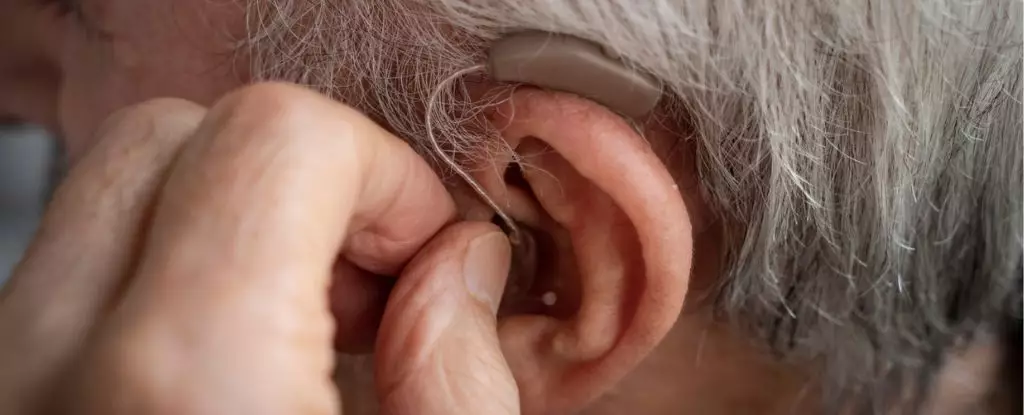Recent research has illuminated a compelling association between hearing loss and the delayed onset of Parkinson’s disease. Among a substantial cohort of over 3.5 million U.S. veterans, it has been demonstrated that individuals facing hearing impairment are diagnosed with Parkinson’s at a later stage, particularly when their hearing loss is severe and prolonged. This data not only emphasizes the connection between auditory health and neurodegenerative diseases but also highlights an essential subject that often slips under the radar – the potential of hearing aids to alter this narrative.
The study’s findings reflect a significant turning point in our understanding of cognitive health, especially as it relates to age and auditory function. By provision of hearing aids at the onset of hearing difficulties, the risk of developing Parkinson’s appears to diminish considerably. The implications of this finding cannot be overstated: effective management of hearing loss may serve as a crucial intervention in safeguarding mental health as individuals age.
A systematic review conducted in 2022 provided insight into how hearing aids can serve as a protective factor against cognitive decline. The research indicated that those using hearing aids were 19 percent less likely to show signs of cognitive deterioration compared to their peers who did not utilize such devices. Furthermore, a landmark clinical trial in 2023 underscored this by demonstrating that hearing aids could potentially mitigate the rate of cognitive decline by nearly 50 percent among certain demographics of older adults.
Just as dementia is intricately tied to cognitive decline, Parkinson’s disease has also been shown to involve a spectrum of neurodegenerative processes. Vision impairments and reduced olfactory senses often precede the hallmark motor symptoms of Parkinson’s, which include tremors, rigidity, and slowed movement. However, as highlighted by the recent research led by neurologist Lee Neilsen, hearing loss warrants closer examination within this context, given that it has not been thoroughly scrutinized until now.
The study’s methodology involved a careful examination of a predominantly middle-aged, male veteran cohort, categorizing their levels of hearing loss, ranging from mild to profound. Over the span of two decades, the research team meticulously tracked the participants and recorded their incidences of Parkinson’s disease. The evidence was robust; veterans with even mild hearing loss exhibited a significantly greater cumulative incidence of Parkinson’s over 5, 10, 15, and 20 years. Remarkably, after two decades, the data suggested an increase of 10 cases of Parkinson’s per 10,000 individuals linked to mild hearing loss.
The most encouraging outcome from the research was the notable difference observed among those who were equipped with hearing aids early in their diagnosis. This proactive intervention seemed to offer a protective effect, with differences becoming evident within just one year of initiating the use of hearing aids. However, it remains to be explored how exactly hearing aids facilitate this protective mechanism – whether they restore neural connections, reduce cognitive strain, or enhance social interaction, thereby alleviating loneliness and depression.
Implications for Healthcare Practice
Given the significant association between mild hearing loss and an elevated risk of Parkinson’s disease, Lee and his team advocate for the integration of hearing screenings into primary care protocols, regardless of the patient’s self-reported hearing difficulties. This proposal highlights a critical need for healthcare systems to prioritize auditory health and its implications for broader cognitive wellbeing.
As we continue to grapple with the implications of an aging population, findings from this extensive study serve as a call to action for both caregivers and medical professionals alike. The potential of hearing aids not only as assistive devices but as crucial tools in the fight against neurodegenerative diseases provides a promising avenue for maintaining cognitive health and enhancing quality of life.
The intersection of hearing health and neurological function is an area ripe for further exploration. As research unfolds, it becomes increasingly imperative to recognize and address hearing loss not just as a sensory deficit but as a vital public health concern with far-reaching implications. By doing so, we may unlock new preventative strategies that enhance mental and cognitive wellness across the aging population.

